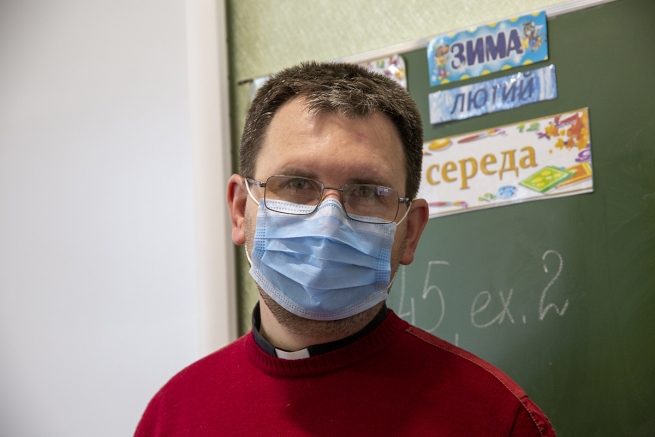Don Max, as everyone calls him, in his messages on WhatsApp always tries to convey something positive. But two Sundays ago, when the first news about the massacre in Bucha started to arrive, it became hard even for him since then.
“Did I see what happened? I see it every day. Because every day here, by now, is an endless shock,” he says. “For the citizens of Kyiv, it is an even stronger pain, because many of the inhabitants of the satellite centers of the capital worked in the city. In the black bags of Bucha, there are close relatives, friends. I spoke with some of them: many of them cannot share that immense, unbearable pain. They answer with half sentences. Or they lower their eyes and don't answer at all. Sometimes they can't even cry. The images of those martyred bodies will remain in the lives of all of us.”
Fr Ryabukha himself is in difficulty: “It is difficult to try to understand who did all this, and even to just try to think of those who committed such inhuman acts. How to forgive? How to consider these people human beings? Mind you, we are all human, with a baggage of both virtues and sins. Everyone has their own pace, some run, some back off. But this thing, these massacres...”.
The Salesian thought back to an episode a few mornings earlier when, on his way to the station, instead of encountering the usual bustle of people, he saw the city standing still, marked by the smell of death, with potholes of explosions and black marks from burned-out cars. “I felt dismay,” says the priest. “I thought that maybe this is how Jesus felt when he walked to Jerusalem for his last earthly Passover. What we are living in this country is a drama of humanity, but it will take time to understand it and make it part of the history of each one of us.”
One is also saved through mutual proximity. Fr Ryabukha is a point of reference for the humanitarian aid arriving in the capital. “A few days ago,” he says, “a truckload of aid arrived and I had to unload it and put it in the oratory. We did everything quickly because the volunteers had to leave immediately for Lviv. Then came those who had to take the aid and bring it to the people here in Kyiv: then we loaded the cars and asked for news of the neighborhoods. Then two military chaplains and some neighbors came to wash and change. To eat something together. Simple things. But that gave us a sense of still being community.”
At the last question, Fr Ryabukha rolls his eyes. “What do I hope for? I dream of peace, I dream of victory, I dream of a life that knows how to enlighten all. I dream immensely of seeing the happy eyes of the kids of the oratory again. I dream of Resurrection. Of Kyiv, of Ukraine. I believe in it.”


